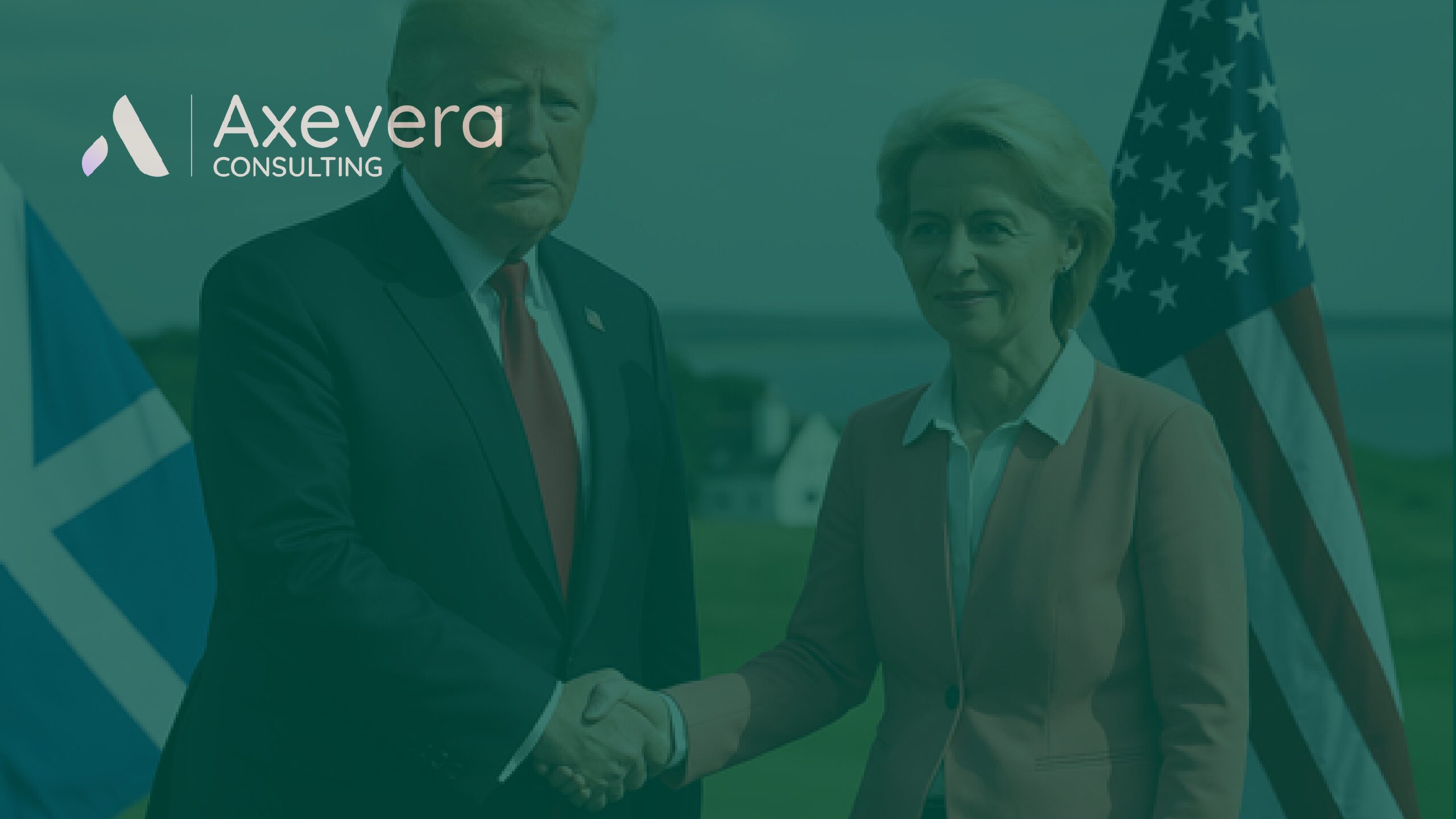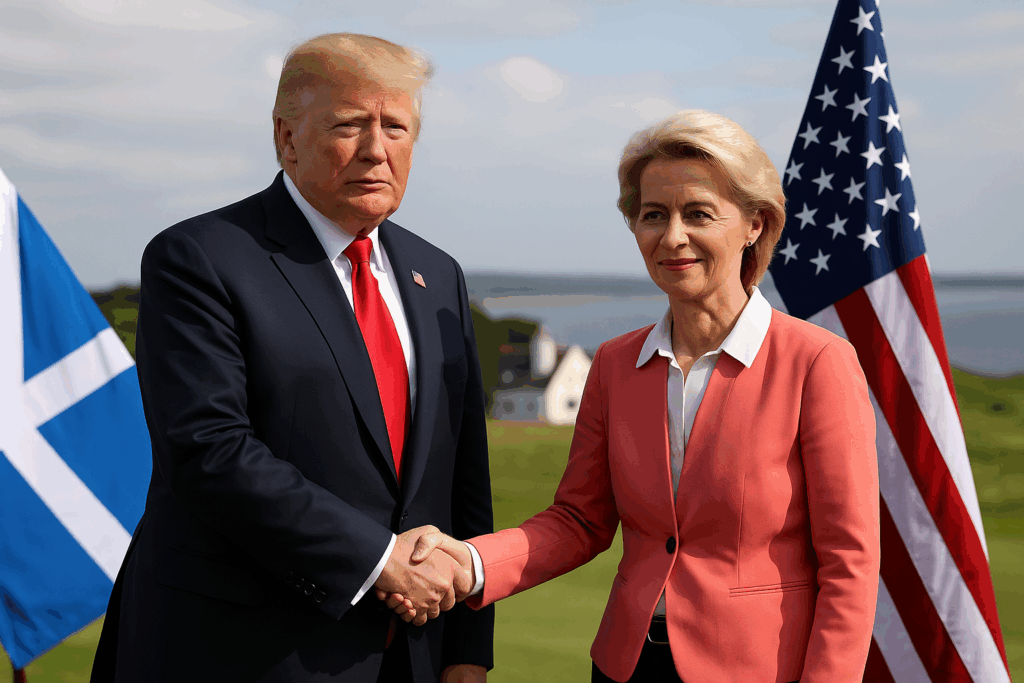
Trump and von der Leyen agreed on a 15% tariff plan during Sunday summit at Turnberry, alongside sweeping EU economic commitments.
At Trump’s Turnberry golf resort on July 27, 2025, U.S. President Donald Trump and European Commission President Ursula von der Leyen sealed a landmark deal that pegs U.S. tariffs on most EU exports at 15%, halving the previously threatened 30% rates.

The agreement was presented by Trump as a landmark success, describing it as “probably the biggest deal ever made”. In return for Washington limiting tariffs on most EU goods to 15 per cent, Brussels committed to an extensive package: $750 billion in U.S. energy purchases over three years and $600 billion in investments and defence procurement. Yet the U.S. will retain its 50 per cent tariff on steel and aluminium, a decision that has already drawn unease from European industry groups and hints at future friction over unfinished aspects of the deal.
Von der Leyen described the deal as imperfect but necessary: “The 15% tariff applies across the board — this was the best we could get,” she said. Certain strategic products — such as aircraft, specific chemicals, semiconductor equipment, and selected pharmaceuticals — are exempt under a zero-for-zero clause, a reciprocal arrangement where both sides agree to keep tariffs at zero for mutually important sectors. However, ambiguity remains around other segments like wine, spirits, and agricultural imports.
Markets responded warmly. The Stoxx Europe 600 rose 1% to a four‑month high, led by gains in exporters, while U.S. stock futures edged higher. Investors welcomed the deal as easing near‑term uncertainty, a relief ahead of key Federal Reserve and Bank of Japan policy meetings later this week.
While Czechia is not a primary target of the U.S. tariffs, the country will feel the effects both directly — through limited niche exports to the U.S. — and indirectly via its close economic integration with Germany’s automotive and industrial supply chains. These secondary impacts are likely to be more significant for the Czech economy. More analysis is available here: Axevera – Czech Republic and Trump 30% tariffs
AI generated image





